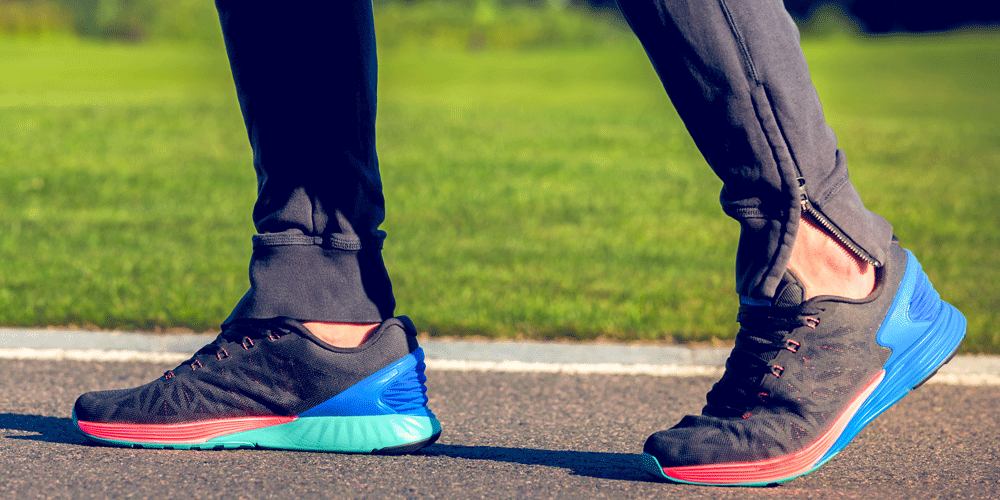James worked in construction for several years before becoming a truck driver. He always wanted to travel, so he went to trucking school and graduated in 2021. In his first year of trucking, he drove in the flatbed division at a great starter company. He'd see ATS drivers hauling really cool loads. He researched the company more and decided to make the move to ATS so he could move into the heavy haul division. He's been with ATS since and has gotten to haul really cool freight and drive through states he's never been to. He loves trucking and doesn't see himself stopping anytime soon.
As an over-the-road (OTR) truck driver, my family and friends ask me all the time, "James, what do you do in your free time?" I’m asked this more than any other question. Sometimes fellow truck drivers even ask me this.
There’s a misconception that drivers finish up their drive time for the day and then they hop in the back of the truck cab and go to sleep — only to wake up and do it all again the next day. While some days are that busy, sure, there can actually be a lot of downtime on the road. I keep myself happily busy.
Weeks spent on the road can feel even longer if you never take a break and get out of the truck. It’s important to do something productive with your free time. It can also help you avoid burnout, stay on the road longer and combat loneliness.
I engage in a lot of activities to keep myself busy when I’m not driving. I’ll help you understand what kind of free time you get on the road and how you can spend your time — especially if you’re new to driving.
No more nights spent in your sleeper berth lonely and bored!
How Much Free Time Do OTR Drivers Get?
Depending on what kind of truck driver you are, your free time can vary. For instance, as a local driver, you may not work weekends but you could work long hours during the week — only giving you enough time to eat and sleep.
According to Hours of Service (HOS) regulations, drivers are allowed to work 14 hours per day, but only 11 of those hours can be spent driving. 10 hours of off-duty rest hours are required and a 30-minute break is required within the first eight hours of your day.
Drivers can only work 60 hours in seven days or 70 hours in eight days. If you reach that threshold, you’re required to take a 34-hour reset. A lot of drivers closely monitor their HOS and run recaps, which allows them to drive at least a few hours each day continuously.
Related: How to run recaps
The Department of Transportation (DOT) does recommend you rest during your 10-hour break — you do need to be well-rested to drive, after all. However, if you’re not the type of person who can hop straight from the driver’s seat into your bunk to go to sleep, you’ll have some time to relax, enjoy a meal and wind down. This valuable time is when you have the opportunity to fill your cup and do something you enjoy.
You also need to consider that you might not work 14-hour days every day of the week. For starters, you’d be over on your HOS and you’d need to take a 34-reset before the week even ends. This does mean you’ll have an hour or two here and there each day to enjoy your time.
Unfortunately, truck drivers can also spend a lot of time sitting around waiting — whether they’re waiting to get unloaded, waiting to get towed, waiting at the shop for a repair or waiting on a customer. Without some sort of way to enjoy your time, you’ll get pretty bored pretty fast.
While you could spend your free time doing laundry, shopping for food, organizing your truck and keeping it clean — it’s your home after all — you do also need to unwind.
Related: Understanding Hours of Service
How Can Truck Drivers Spend Their Free Time?
There are tons of ways you can spend your time on the road. Here are just a few ways I — and other drivers like me — like to spend my time.
1. Enjoy Gaming and Television
A lot of drivers like to resort to their sleeper for the night to disengage and game or watch television.
You can get Wi-Fi using your personal hotspot with your smartphone. This’ll give you decent upload and download speed.
Board games are another great option. I like to grab my chessboard and set it out at the truck stops. I can play by myself and a lot of other drivers will play a game or two with me. It gets me out of the cab and I enjoy the socialization it provides.
2. Download Podcasts and Audiobooks
After a long day of driving, maybe the last thing you want to do is stare at a screen. Podcasts and audiobooks aren’t just enjoyable while you drive; they’re also enjoyable to listen to as you wind down before getting some sleep.
The best part? You can enjoy podcasts and audiobooks for free. Podcasts are offered for free on several platforms (Spotify, etc.) but you can utilize an app called Libby to connect to your local library’s offerings with your library card and borrow audiobooks.
3. Bring Your Hobby On the Road
Your hobby doesn’t have to stay at home. I know drivers who bring their guitars or equipment for sports or exercise on the road.
I met a driver who has a battery-powered scooter. It can travel 70 miles per hour with a 160-mile range. It’s about 100 pounds and folds to easily fit inside the semi-cab. He goes around the truck stop and explores the town if there’s one nearby.
I love snowboarding, so if I know I’m going to be driving in an area known for great snowboarding, I’ll grab my gear when I’m at home.
Even cooking could be a good hobby for you to enjoy. You probably won’t be able to cook up the same fancy meals as you’d be able to at home, but with the right tools, you can still enjoy cooking some meals in your truck. It’ll save you money, too.
4. Enjoy the Scenery
You’re already traveling, so why not plan a few adventures? As a truck driver, you can take little mini vacations all over. There are customers and shippers in every nook and cranny of the country — and you can explore them all with a little planning.
For instance, I got sent out to Las Vegas for a few days to wait for a load. Instead of waiting in the truck that whole time, I explored the area.
Enjoy your free time; take advantage of it. You work hard on the road, and you deserve to see some of the places you’re driving through.
Taking the time to explore new areas also breaks up the monotony of driving. If I feel burned out on driving, I like knowing I have the option to get out of the truck and explore one night or take my 34-hour reset in a new city.

5. Work on a Skill
I’m big on learning, and being out on the road and exposed to so many people gives me a chance to learn from a lot of different people.
I’m currently a flatbed driver working my way up to the heavy haul division, so I have a lot to learn. I take advantage of my surroundings by talking to the experienced truck drivers I meet at truck stops. If someone is hauling an over-dimensional load I’ve never hauled before, I’ll talk to them about how they secured the load. Sometimes, I build relationships with these drivers and they become mentors to me.
I also spend a lot of time researching to understand more about trucking because there’s a lot they don’t teach you in trucking school. For instance, I was hauling a removable gooseneck trailer (RGN) for the first time a few months back. I researched everything I could about the trailer to make sure I was maintaining it properly.
I also read trucking forums and watch videos about the industry. It keeps me knowledgeable about the field and helps me improve my skills.
If you’re looking to improve a skill, you’ll definitely have plenty of time to research it or practice it in the truck.
6. Talk to Family
I’m on the phone and video-chatting with my family often. Having access to family at the touch of a button eases the mind, especially if you’ve had a tough day.
If you have family at home, it’s important to set aside scheduled time to talk to them.
Why is Free Time Important On the Road?
While you could certainly stay in the truck day in and day out, it’s not a great idea. Being in such a small space 24/7 can be stifling — especially when you’re on the road for weeks at a time. People in a desk/office environment wouldn’t want to spend all their leisure time in a cubicle, so don’t keep yourself in your truck the whole time.
Taking breaks outside your truck is crucial. It provides a good distraction from the work day and can also distract you from the loneliness you may be feeling. It can be tough working long hours and long weeks on the road, but if you have something enjoyable to look forward to each night, it makes it a little easier. It also makes it easier to stay on the road longer.
Truck driving is stressful — I know you know that. Sometimes just getting out of the truck and conversing with other drivers or taking a walk is enough to help you calm down and forget your troubles.
Having a family when you’re a truck driver is hard. In fact, one of the top reasons drivers leave OTR trucking is to switch to a job that provides more home time so they can be with their families. Engaging in a hobby on the road is a nice distraction from missing home. Whether you have a partner and kids at home or not, there are likely some comforts of home you’re missing.
Get Your Head in the Game
As truck drivers, we have a tough, stressful job. We need to rest, sure, but it’s also important we have time to unwind and engage in activities we enjoy.
Drivers need to take a 30-minute break during the first eight hours of their day and they’re also required to take a 10-hour break each day. After working 60 hours in seven days or 70 hours in eight days, they need to take a 34-hour reset. Drivers also spend a lot of time waiting around — which gives them a lot of time for activities.
Don’t just sit around mindlessly scrolling on your phone. Do something you enjoy, like gaming, listening to a book, engaging in a hobby, exploring the area or learning a new skill.
One of the best activities on the road to utilize your breaks and get your head in the right space is to exercise. If you’re new to exercising on the road as a truck driver, these exercise tips will help you get started. Exercising as a truck driver is a great way to improve your physical health, reduce stress and anxiety, improve sleep quality, increase energy and reduce the risk of injuries on the road.



